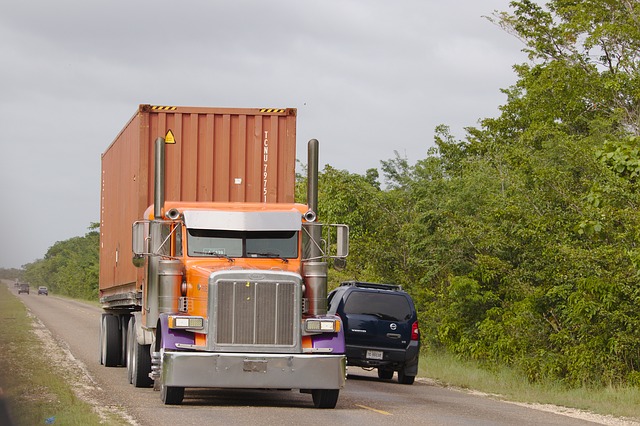
-
The Land Transportation Franchising and Regulatory Board (LTFRB) has extended the validity of provisional authority (PA) for trucks-for-hire from 90 days to one year
-
Validity period starts on the date of the PA
-
Truckers’ group welcomes development but continues to push for moratorium on policy banning 15-year-old trucks from roads
The provisional authority (PA) for trucks-for-hire (TH) is now valid for one year instead of just 90 days, according to the Land Transportation Franchising and Regulatory Board (LTFRB).
The extension was granted considering the vital role THs play in moving essential goods all over the country, according to LTFRB Board Resolution No. 033 series of 2021 dated April 10, 2021.
Validity period will start on the date of the PA and the extension is without “prejudice to the outcome or resolution of their main application” for Certificate of Public Convenience (CPC), the resolution said.
Confederation of Truckers Association of the Philippines (CTAP) president Pepito Dino told PortCalls in a text message that anything that can help road transportation, particularly THs, “is very welcome to us.”
The resolution noted that the LTFRB Board recognizes the challenges brought about by the COVID-19 pandemic, especially in the setting of hearing schedules. From March 16 to November 30 last year, it said, the limited number of hearing officers effectively led to the cancellation of hearings. For applications received from June 1, 2020, the new schedule would take more than three months from the filing of application.
And despite the drastic change in hearing schedules of applications, causing truckers “to renew their PA several times until their CPC is issued”, trucks operating outside of Philippine Economic Zone Authority (PEZA) economic zones still had a PA validity period of 90 days, the resolution observed.
LTFRB in 2019 granted truckers operating in PEZA zones 365 days of PA validity to ensure continuous and unhampered operations of truckers in economic zones.
The resolution pointed out that just like truckers operating in PEZA, TH services outside the zone are equally important so their operations should also not be interrupted and hampered, especially in this time of pandemic, as they play “a vital role in the movement of essential goods all over the country, such as but not limited to foods, medicines, materials and other basic commodities.”
CTAP’s Dino said the new policy will not affect truck units whose franchises have already expired due to the 15-year-old truck age policy.
He confirmed that CTAP is still pushing for the re-imposition of the moratorium on the 15-year-old truck age policy as the group maintains roadworthiness, not age, should be the basis for franchise.
READ: Truckers insist vehicle roadworthiness, not age, as basis for franchise
CTAP earlier reiterated this position during a March 19 meeting between LTFRB and truckers.
CTAP’s call comes after the moratorium on the implementation of the policy on 15-year-old trucks under LTFRB Memorandum Circular (MC) No. 2018-007, issued in 2018, lapsed in June 2020; the moratorium was later extended until December 29, 2020 through MC 2020-032.
MC 2018-007 was issued to conform with Department of Transportation (DOTr) Department Order (DO) No. 2017-09, which was signed in 2017 and reinforces DO 2002-030 on the mandatory age limit for buses-for-hire and THs covered by the Certificate of Public Convenience or CPC.
DO 2002-030 calls for replacing old, dilapidated public utility vehicles (PUVs) such as THs to modernize the country’s fleet and prevent accidents and untoward incidents.
As a result, Dino said some member truckers with units of more than 15 years old will no longer be able to renew their CPC this year due to the expiration of the moratorium.
He added that according to LTFRB records, about 43% of truck owners have complied with the truck age requirement. But he said the bigger 57% will find it difficult to re-fleet as they have yet to recover from the impact of the COVID-19 pandemic.
In a 2018 forum with truckers, LTFRB chairman Martin Delgra III noted roadworthiness will be the basis for granting CPC to PUVs such as trucks, going by a provision in MC 2018-007, which said that once Motor Vehicle Inspection System (MVIS) Centers are established, a roadworthiness certificate will become the basis for a PUV’s roadworthiness.
In 2019, DOTr said it hoped to start in 2020 granting privately operated Motor Vehicle Inspection Centers the authority to determine if trucks were roadworthy regardless of age. The plan has yet to materialize.
CTAP and the Alliance of Concerned Truck Owners & Organizations are pushing for speedy establishment and implementation of MVIS for heavy vehicles, including trucks.
CTAP said it supports the MVIS as it “will institutionalize a technology-driven vehicle inspection service to determine the roadworthiness of TH trucks in the proper issuance of franchise.” – Roumina Pablo




